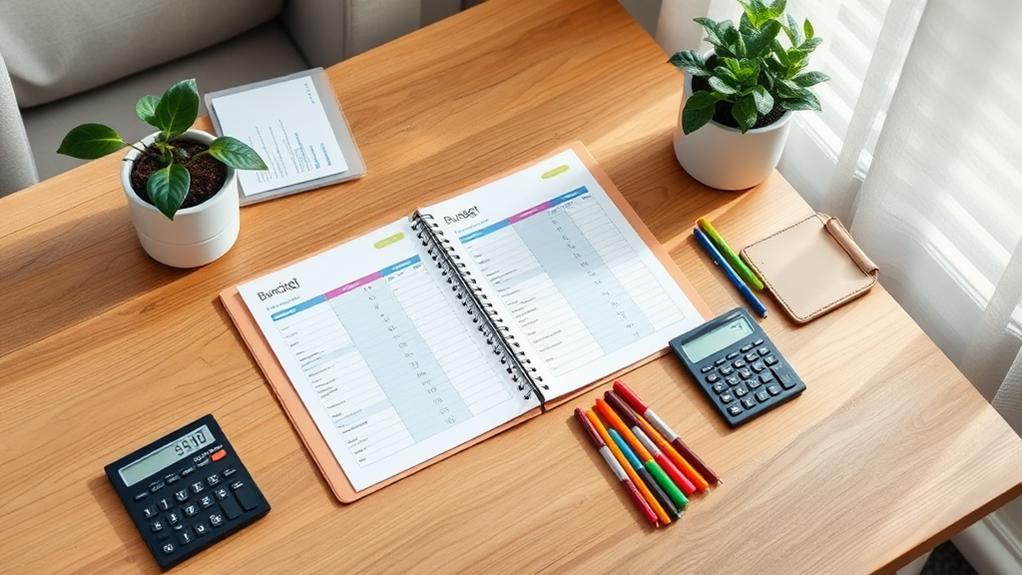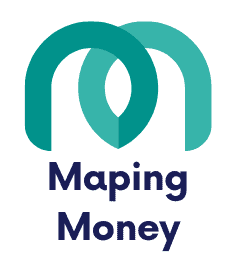5 Tips for Successful Money-Saving Budgeting
Successful money-saving budgeting starts with setting clear financial goals. Identify what you want to achieve and break it down into specific, attainable targets. Next, track your expenses diligently; knowing where your money goes helps you make informed choices. Create a realistic budget that reflects your income and prioritize savings as a non-negotiable expense to build a safety net. Finally, review and adjust your budget regularly to stay on track and adapt to life changes. With these tips, you’ll gain better control over your finances and work towards your goals effectively, and there’s even more to explore on this journey.
Key Takeaways
- Set clear financial goals to stay motivated and focused on your saving targets.
- Track your expenses diligently to understand spending patterns and identify areas for savings.
- Create a realistic budget that accounts for both fixed and variable expenses, allowing for necessary adjustments.
- Prioritize savings by treating them as a non-negotiable expense and automating contributions.
- Review and adjust your budget regularly to ensure it remains aligned with your financial goals and lifestyle changes.
Set Clear Financial Goals
Setting clear financial goals is essential for effective budgeting. When you define what you want to achieve, you’re not just creating a pathway to freedom; you’re igniting your motivation. Think about your dreams—whether that’s traveling, buying a home, or building a nest egg. Break these dreams down into specific, attainable goals.
Instead of saying, “I want to save money,” state, “I want to save $5,000 in the next year.” This specificity gives you a target to aim for. Next, consider the timeline for each goal. Short-term goals can keep you engaged, while long-term goals provide a broader vision.
Don’t forget to revisit and adjust your goals regularly. Life changes, and your financial aspirations should evolve too. This flexibility helps you stay aligned with your vision of liberation.
Track Your Expenses
Once you’ve established your financial goals, the next step is to track your expenses. This vital action gives you a clear picture of where your money’s going and helps you make informed decisions. Start by recording every purchase, no matter how small. Use an app, spreadsheet, or even a simple notebook—whatever feels right for you. The key is consistency.
As you track, categorize your spending. You’ll quickly see patterns emerge, revealing areas where you might be overspending. It’s empowering to identify these habits; it’s your money, after all. By recognizing these trends, you can take charge of your finances instead of letting them control you.
Don’t forget to review your expenses regularly. Set aside time each week or month to reflect on your spending habits. This practice not only keeps you accountable but also allows you to celebrate your successes, no matter how small. Remember, tracking your expenses isn’t just about restrictions; it’s about liberation. The more you know about your financial habits, the more freedom you’ll have to align your spending with your goals, ultimately leading to a life that reflects your values and aspirations.
Create a Realistic Budget

Creating a realistic budget is essential for achieving your financial goals. It helps you take control of your money and makes it easier to understand where your funds are going. To create a budget that truly works for you, start by evaluating your income and expenses honestly. Here are some tips to guide you:
- Evaluate your income: Know exactly how much you bring in each month.
- List fixed and variable expenses: Identify necessary costs like rent, utilities, groceries, and discretionary spending.
- Set limits: Allocate specific amounts to each category, ensuring you don’t overspend.
- Be flexible: Life happens, so adjust your budget as needed; it’s not set in stone.
Prioritize Savings
While it might be tempting to spend your extra cash as soon as you get it, prioritizing savings is essential for your financial well-being. Think of savings as your financial safety net, empowering you to face emergencies, seize opportunities, and achieve your dreams. By setting aside a portion of your income before you even think about spending, you’re ensuring that you’re investing in your future.
Start by automating your savings. Set up a direct deposit from your paycheck into a savings account. This way, you won’t have to think about it. Treat your savings like a recurring bill—non-negotiable and essential.
Consider establishing specific savings goals. Whether it’s for an emergency fund, a vacation, or a down payment on a house, having clear targets keeps you motivated. You’ll feel a sense of liberation as you watch your savings grow, knowing you’re building a foundation for your financial freedom.
Review and Adjust Regularly

To guarantee your budgeting remains effective, it’s essential to review and adjust your plan regularly. Life changes, and so will your financial situation. By checking in on your budget, you can confirm it still aligns with your goals and needs. Don’t let your budget become a rigid cage; instead, treat it like a living document that adapts to your journey toward financial freedom.
Here are some key points to reflect on during your reviews:
- Track your spending: Analyze where your money’s going and see if it matches your priorities.
- Assess your goals: Are your financial goals still relevant? Adjust them as your circumstances change.
- Identify patterns: Look for recurring expenses or areas where you might be overspending, and tweak those categories.
- Celebrate progress: Acknowledge your successes, no matter how small, to stay motivated.
Make it a habit to review your budget monthly or quarterly. This reflection allows you to pivot when necessary, empowering you to take charge of your financial future. Embrace the freedom that comes with being proactive and flexible in your budgeting approach!
Frequently Asked Questions
How Can I Stay Motivated to Stick to My Budget Long-Term?
Did you know that 70% of people abandon their budgets within three months? To stay motivated long-term, celebrate small victories, visualize your goals, and remind yourself how financial freedom feels. You’ve got this!
What Tools or Apps Can Help With Budgeting Effectively?
To budget effectively, explore apps like Mint, YNAB, or PocketGuard. They help you track expenses, set goals, and visualize spending, empowering you to take control of your finances and achieve your financial freedom.
How Do I Handle Unexpected Expenses Without Derailing My Budget?
When life throws a curveball, don’t let it shake your financial freedom. Embrace a flexible cushion within your budget. Set aside a small emergency fund, and you’ll navigate those unexpected bumps with ease and confidence.
Is It Necessary to Use Cash for Budgeting or Can I Go Digital?
You don’t have to use cash for budgeting; going digital’s perfectly fine. Track your spending through apps or online tools. It can give you flexibility and freedom, making it easier to manage your finances effectively.
How Often Should I Review My Financial Goals and Budget?
How often should you review your financial goals and budget? Think of it as tuning a musical instrument; regular check-ins keep your finances harmonious. Aim for monthly reviews to stay aligned with your aspirations and adjust as needed.







